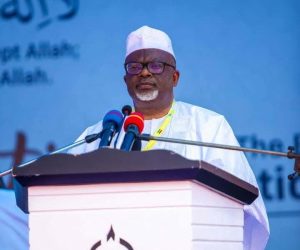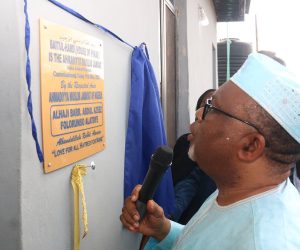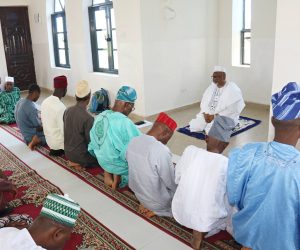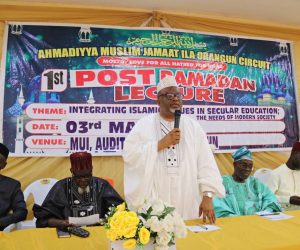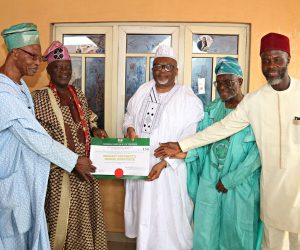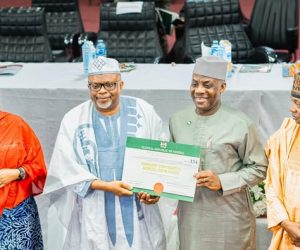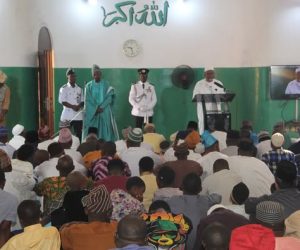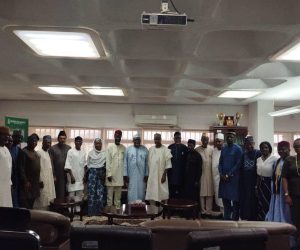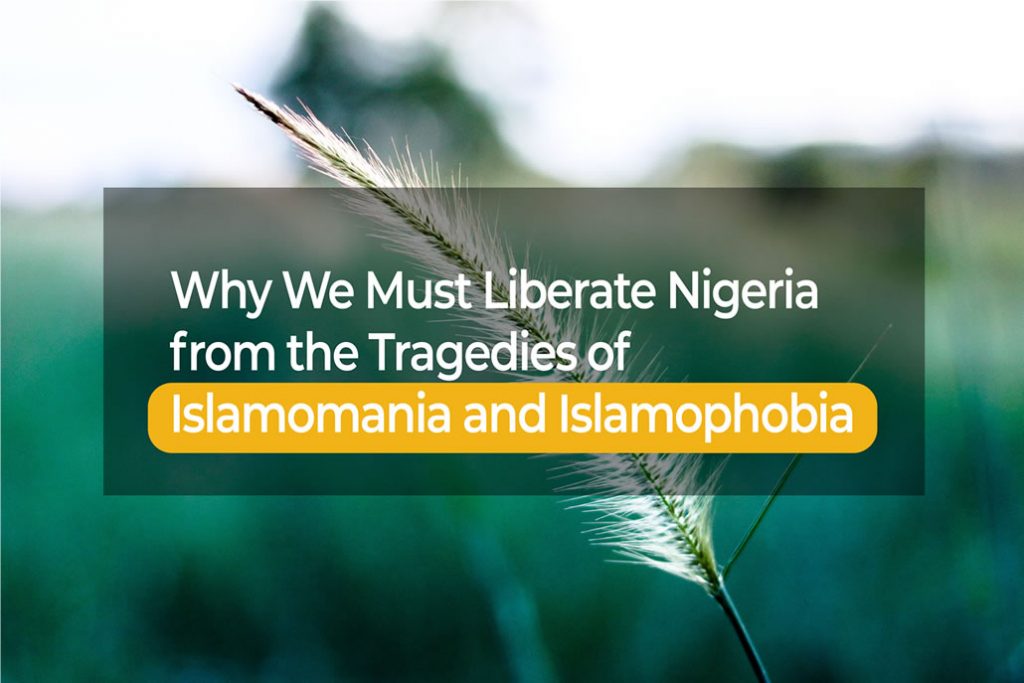
As current affairs in Nigeria show, there is no doubt that the state of the nation is at a critical crossroads. From the lingering challenges of state and human security to the persisting issues of political economy, the rising uproar about alleged regional marginalization and the call for restructuring for a true federalism, the crises of electoral politics, the spate of corruption, unemployment and poverty, and the conflict of ethnic and religious identity and expression etc., Nigeria is presently facing challenges that are combining to threaten and bedevil the corporate political, economic, social and religious existence of the country and her citizens.
Without underestimating the criticality of each of the aforementioned myriads of challenges, this piece focuses on addressing what it views as the tragedies of religion in Nigeria – the monsters of Islamomania and Islamophobia – which have been eating deeply into and dividing and destroying the fabrics of the individual and corporate existence of Nigerians.
Of course, the primacy of addressing religious issues in Nigeria should be easily informed by the fact of the centrality of religion in every ramification of the personal and corporate existence of Nigerians, and particularly, the divisive and destructive impacts religious crises have always had upon the country. In his Ethno‐religious Identity and Conflict in Northern Nigeria (2010), Eyene Okpanachi, making reference to Smyth and Robinson (2001), opined that “Nigeria is usually characterized as a deeply divided state in which major political issues are vigorously and or violently contested along the lines of the complex ethnic, religious, and regional divisions in the country.” This is understandable. For, as a December 18, 2012 report conducted by Pew Research Centre shows, 97.2% of the population of Nigeria is under the grip of religion. More instructive is I. Enwerem’s assertion in his 1995’s A Dangerous Awakening – The Politicization of Religion in Nigeria (published by IFRA, Ibadan) that, “religion has always been important in Nigeria and in Nigerian politics.” In fact, Paden J. once aptly declared in his Faith and Politics in Nigeria (2008) that, “the intensity of religious identity in Nigeria is regarded as one of the highest in the world.” Evidently, Paden’s claim is supported by the fact that as Eyene Okpanachi again opined, “Nigerians are more likely to define themselves in terms of religion than any other identity. Indeed, according to the authoritative May-June 2006 survey conducted by the Pew Forum on “Religion and Public Life”, 76% of Christians say that religion is more important to them than their identity as Africans, Nigerians or members of an ethnic group. Among Muslims, the number naming religion as the most important factor is even higher (91%).”
Proceeding with the thrust of this piece, in simple terms, this writer views Islamomania as expressive of the psychological state of the narrow-minded, hardliner, extremist Islamists who digest Islam like opium with an unbridled poise to express and preach the religion or introduce and enforce its Sharia Law upon others in a rather radical, fanatical, coercive and do-or-die manner. On the other hand, Islamophobia connotes non-Muslims’, particularly Christians, irrational and unfounded fear of, prejudice against and hatred for Islam and Muslims. Apparently, the twain phenomena represent aberrant psycho-social complexities that have become deeply rooted in the psychological perception and empirical expression of or reaction against Islam by some elements in Nigeria over the decades, with an increasing proportion in recent times.
Evidently, as both the past and ongoing trends have shown, whether it was the Muslims’ Maitatsine crisis that resulted in over 2,000 loss of life in the 1980s, the bloody crises of Sharia introduction that trailed Nigeria’s return to democratic dispensation in 1999, the menace of Boko Haram insurgency that has claimed the lives of tens of thousands and internally displaced over two million Nigerians, the instances of angry outbursts, and sometimes violent reactions, against the legitimacy of the Nigerian secular, democratic system and constitution by some extremist Muslim individuals and groups, or the various cases of intra-religious theological and ideological skirmishes among Muslim individuals, sects and denominations in the country, Islam has been an object of Islamomaniac expressions in the hands of some so-called Muslim elements. While these developments may be attributed to gross misconception and misinterpretation of Islamic Scripture, Prophetic traditions and early historical events on the part of such individuals or groups, there is no doubt that they constitute sheer misrepresentation and, in fact, an immense disservice to the image of Islam.
Similarly, from the side of the non-Muslims, it is apparent that whether it is the Christians’ incessant cases of prejudice against and hullabaloos over Muslim women hijab dress, the uproar over the introduction of Islamic banking system, the entrenched instances of prejudicial stereotyping of Muslims, or the recently increasing outbursts alleging an Islamization of Nigeria agenda, in reaction to various cases of political appointments by the government of the day or its participation in the Organization of Islamic Cooperation summit or the menace of herdsmen banditry, etc., Islam has continued to be a victim of Islamophobic perceptions and reactions by non-Muslim Nigerians.
Disturbingly, these phenomena (in a country where unholy romance between religion and politics has seen constant politicization of religion and religionization of political issues) have not only continued to heat up the Nigerian socio-religious space but are increasingly turning the country into a hotbed of catastrophic intra/inter-religious and socio-political suspicion, mistrust, clashes and commotions, resulting in the threat against national solidarity, coherence and unity of the country as well as socio-political and religious peace, harmony and security of life and the State.
Expediently, with the deepening inter-religious suspicion and mistrust and the rising socio-religious and political tensions in the country, if we must reconstruct Muslims’ expression of, and non-Muslims’ reaction to, Islam as a socio-political and religious ideology; if the Nigerian government and people are genuinely desirous of uniting the various religions and ethnicities under a harmonious socio-religious co-existence; and if the government must ensure the security of the state and its people and save human lives from carnage, public infrastructure from destruction and Nigeria’s political solidarity and sovereignty from collapse, then the issues of Islamophobia and Islamomania would have to be critically assessed and frontally deconstructed. And importantly, such development must necessarily involve the collective endeavour by the government through its appropriate agencies like the National Orientation Agency, etc., the religious leaders, the inter-faith organizations, the political elites, media actors, academics and, in fact, the totality of Nigerians. This is the thrust of this piece.
Importantly, any attempt to disabuse the minds of the non-Muslims in Nigeria from Islamophobic perception of and reaction against Islam must impress the fact that, by its original teachings, Islam is a world order constructed upon the intrinsic values of peace, love, understanding and respect for and tolerance of others. It is not a barbaric, violent, extremist and war-mongering religion. More specifically, such an attempt should also impressively disabuse their minds in the light of what Stephen Schwartz highlighted as ‘Islamophobes that aren’t’ as published in the April 28, 2005 edition of Front Page Magazine thus: “Condemnation of the entirety of Islam and its history as extremist; denying the existence of a moderate Muslim majority; regarding Islam as a problem for the world; treating conflicts involving Muslims as necessarily their own faults; insisting that Muslims make changes to their religion; and, inciting war against Islam as a whole.” Instructively, when non-Muslims in Nigeria think of what Islam means, they should remember millions of peaceful, loving and well-meaning Muslims, like the award-winning Muslim Imam, Abubakar Abdullahi, in Nghar village of Plateau State who, on 23 June 2018, risked his own life to shelter in his mosque 262 Christians fleeing from the blood-thirsty herders who were pursuing them.
For the Islamomaniacs among the Nigerian Muslim populace, it is necessary that their present theological and ideological conception of Islam must be holistically assessed and reconstructed. Very importantly, starting from the academic level, the present curriculum of Islamic studies should be reviewed, particularly, where students from secondary to tertiary levels are being taught anti-human rights and anti-Islamic lessons like, for example, a very spurious tradition that says, “kill whoever changes his religion”. Ditto to the widespread misinterpretation of the tradition that, “I have been command to fight people until they attest to the Islamic credo: there is no God but Allah and Muhammad is the Messenger of Allah. When they do that, then they are safe from me.”
They must be re-orientated that Islam recognizes the fundamental human right to freedom of religion and conscience without compulsion when it says: “there should be no compulsion in religion” (Quran, 2:257). That it recognizes the configuration of an inclusive and pluralistic society when it says: “For you your religion and for me, my religion;” (Quran, 109:7) and “For each of you We prescribed a clear spiritual Law and a manifest way in secular matters” (Quran, 5:49). It recognizes the right to freedom to either believe or disbelieve in or accept or reject a religion: “And say, ‘It is the truth from your Lord; wherefore let him who will, believe, and let him who will, disbelieve” (Quran, 18:30). And in the strongest terms, Quran declares: “And if your Lord had enforced His will, surely, all who are on the earth would have believed together. Will you, then, force men to become believers?” (Quran, 10:100) How beautiful is the Prophet Muhammad’s (saw) instruction against extremism: “Make (religion) easy, not difficult; give good news, and do not frighten people away from the religion” (Bukhari and Muslim)
The judgement for those who apostate is left for God and none is legally authorized to kill them: “Those who believe, then disbelieve, then again believe, then disbelieve, and then increase in disbelief, Allah will never forgive them nor will He guide them to the way” (Quran, 4:137). Clearly, if the death penalty is what the law prescribed for them, then such luxury of chances of believing and disbelieving would not be available. More so, Islam recognizes the sanctity of human life and condemns extra-judicial bloodshed in unequivocal terms: “And kill not the soul which Allah has forbidden save for just cause;” (Quran, 17:34) and, “Whosoever killed a person – unless it be for killing a person or creating disorder in the land – it shall be as if he had killed all mankind, and whoso gave life to one, it shall be as if he had given life to all mankind” (Quran, 5:33). Similarly, though strongly condemned by Islam, nowhere has the Quran prescribed punishment for blasphemy against God and His Prophets and Scriptures. Rather, Quran says: “And bear patiently all that they say; and part with them in a decent manner,” (Quran, 73:11) and, “Nothing is said to thee but what was said to the Messengers before thee. Thy Lord is indeed the Master of forgiveness; and also Master of painful chastisement” (Quran, 41:44) Similarly, without exclusively prescribing and restricting Muslims to any given system, Islam recognizes the legitimacy of democratic electoral and political systems when it says: “Verily Allah commands you to makeover the trust to those entitled to them, and that when you judge between men, you judge with justice” (Quran, 4:59). Several of such teachings are found in the Quran.
It is the opinion of this writer that the one-time viral-going comment, “If we do not tame religion in this nation, religion would kill us” made by Professor Wole Soyinka (www.thecable.ng/religion-will-kill-nigeria-not-tamed-says-soyinka) should be perceived as reactionary to the ominous impacts which religion has had upon Nigeria overtime consequent upon various phenomena like Islamomania and Islamophobia.
However, it is important to note that, from a functional perspective, as one of the oldest human institutions, the essence of religion is that it is divinely institutionalized with the objective of directing and shaping the course of human life, experience and history towards the direction of human and cosmic progress, peace and development. Dr. Yvette Reisinger corroborates this when he asserts in his International Tourism: Cultures and Behaviors, (published (2009) in the UK by Butterworth-Heinemann) that, “the foundation of major world civilizations are the major world religions.” Thus, religion has been a catalyst to the historical, social, political, intellectual and economic development of humanity.
In the light of the above, as a Pew Research report (18 December 2012) shows, in 2010, 48.3 percent of Nigeria’s population was Christian, 48.9 percent was Muslim, and 2.8 percent were followers of indigenous and other religions, or unaffiliated. These statistics clearly shows that 97.2% Nigerians profess faith in the two main religions. Thus, on the strength of the teachings of their religions as well as their combined demographic strength, Muslims and Christians in Nigeria can collectively use religion to build and prosper the country, rather than divide and destroy it.
Yunus Omotayo is a Missionary of Ahmadiyya Muslim Jamaat Nigeria, National Secretary of the Muslim Writers’ Guild of Nigeria, and Correspondent of The Truth Newspaper, Nigeria.

